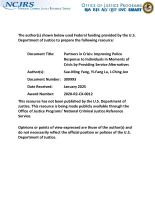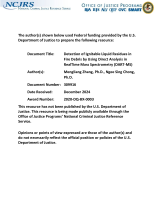Social Networks and Health in a Prison Unit
Journal
Journal of Health and Social Behavior
Date Published
2018
Agencies
NIJ-Sponsored
Publication Type
Research (Applied/Empirical)




